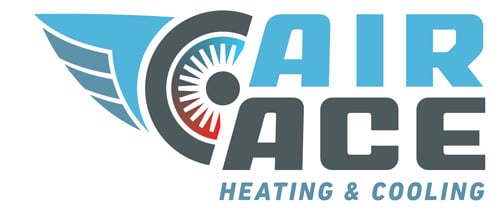Step-by-Step Guide on How to Fix Freon Leak in Your AC Unit: Efficient Repair Tips

Do you suspect a Freon leak in your AC unit? Our straightforward guide teaches how to fix a freon leak in an AC unit. We’ll help you quickly identify and patch up the issue while also knowing when it’s time to call the experts for help. Start taking steps toward a cooler home today without the unnecessary jargon.
Key Takeaways
- Early detection of freon leaks is critical and can be identified through symptoms like reduced cooling efficiency, unusual noises, ice on evaporator coils, and increased energy bills.
- Freon leaks primarily stem from wear and tear, with common causes including worn-out rubber seals and corrosion. Locating leaks can be done with specialized tools or alternative methods like the soap bubble test or UV dye.
- Repairing Freon leaks involves sealing small leaks or calling a professional for major issues; preventive maintenance is key to avoiding future leaks. Upgrading to newer R410A AC units may be more cost-effective than frequent repairs for older systems using R22 refrigerant.
Recognizing the Symptoms of a Freon Leak

Detecting a refrigerant leak early on is essential. Here are some indicators that can help identify such an issue.
- Lack of cooling: If your AC unit begins to emit warm air or there’s an absence of airflow through the vents, this could be a sign of a possible refrigerant leak.
- Silence from the AC: If your AC does not make sound, it may mean that the refrigerant levels have dropped too low.
- Odd sounds: Hissing noises might indicate problems with the compressor or increased pressure within the system, which is often associated with leaks.
A clear indication of a Freon leak can also be noticed when ice or frost accumulates on the evaporator coils. These coils are instrumental in cooling down air, but without enough refrigerant present, they tend to freeze over, suggesting there might be leakage.
Seeing an uptick in energy bills paired with rising indoor humidity could signify a Freon leak. Understanding these symptoms is pivotal. Let us now explore what typically causes these issues with leaking refrigerants.
Common Causes of Freon Leaks
Degradation through regular use is frequently the primary reason for freon leaks in AC units. A few typical factors leading to a leak of freon are:
- The deterioration of rubber seals which eventually fails to contain the refrigerant.
- Environmental exposure and corroding joints contribute to leakage.
- Formicary corrosion due to formic acid results in tiny punctures within the copper tubing of air conditioning systems.
Manufacturing flaws or faulty installation can result in subsequent freon leaks as time goes by. Recognizing these underlying causes is essential for pinpointing where the leak originates, an imperative step toward executing effective repairs.
Locating the Source of a Freon Leak
Should you suspect a freon leak, finding where it originates is your next move. Automatic and electronic detectors are available for precisely locating refrigerant leaks in AC systems. But if such specialized equipment isn’t at hand, what can one do?
Enter the soap bubble method: an uncomplicated and economical approach to detect leaks. By applying soap to areas under suspicion, any emerging bubbles will reveal the presence of a leak. As an alternative, introducing UV dye into the AC system can also serve as a detector. When examined with a detection lamp, this technique accurately reveals where the refrigerant is escaping.
With the source of leakage pinpointed within your air conditioning unit’s network of components, the task then becomes getting our hands dirty to seal that breach effectively.
Repairing the Freon Leak: A Step-by-Step Guide

To commence the repair of an AC unit suffering from a leak, one must first contain the issue by turning off the unit and adequately sealing its service valves to halt Loss of refrigerant. In instances where small leaks are identified, it is recommended to utilize epoxy or solder on the area that has been duly cleaned and prepared in order to effectively seal off any leakage.
Following the completion of these repairs, several essential steps should be undertaken.
- Conduct a pressure test with nitrogen to verify that there are no remaining or new leaks.
- Provided that no additional leaks have surfaced post-repair proceed with evacuating the system in order to eliminate all traces of air and moisture.
- Replenish the AC system’s levels of refrigerant.
- Monitor closely for consistent operation within normal parameters in your now-repaired AC unit.
Temporary Solutions: Leak Sealants
It’s important to remember that utilizing a leak sealant may offer an immediate but short-lived remedy. Such sealants can temporarily close minor leaks within the air conditioning (AC) system’s drain line. Nevertheless, using these products as a lasting fix can result in additional freon leaks down the road.
Temporary solutions like AC EasySeal or Flex Seal Rubber Sealant Coating might be appropriate for certain scenarios to help address small-scale leakage problems. They should not be considered enduring repairs when it comes to dealing with freon leak issues in air conditioning units.
When to Call a Professional HVAC Technician
Should a significant leak occur, it is essential to deactivate and disconnect the AC unit promptly, then contact an expert technician to manage the repairs. Signs that warrant professional intervention include increased humidity indoors or if there are audible hissing and bubbling noises originating from your air conditioning system.
Attempting DIY fixes on a refrigerant leak can be fraught with dangers, such as exposure to hazardous substances and the potential for inadequate repair efforts, leading to unsafe or suboptimal system performance. It’s always advisable to seek advice from a certified HVAC technician before trying any home-based repair solutions, like applying sealants, to guarantee both safety and efficacy.
Preventing Future Freon Leaks
Ensuring that refrigerant leaks are avoided is just as crucial as having the know-how to repair them when they occur. Conducting routine checks and seasonal examinations of your AC unit plays an indispensable role in averting potential leakage of refrigerant. Diligently replacing the air filter every 30 to 90 days can be instrumental in staving off complications that may result in such leaks.
Keeping a vigilant watch over elements like the drain line, air filter, and external condenser part of your system can inhibit instances of leaking coolant. Curtailing close human activities around the outdoor condenser might prevent inadvertent harm to it. Swiftly rectifying any detected leakages is vital for retaining energy efficiency and safeguarding your air conditioning from damage incurred by escaping refrigerants. Consistent surveillance over lines carrying this essential fluid will aid in the prompt identification of looming problems before they escalate.
Upgrading Your AC System: R22 vs. R410A Refrigerants

Should your air conditioner, often called an AC unit, consistently experience refrigerant leaks, specifically freon or R22 leakage, it might be time to invest in a new model that utilizes the more eco-friendly R410A refrigerant. The shift away from using R22 is due to its substantial ozone depletion potential and has subsequently ceased production. On the other hand, systems operating with R410A are not only less harmful to the ozone layer but also improve energy efficiency within HVAC systems.
Transitioning to an AC system designed for R410A means you’ll need to replace old units. They cannot simply be retrofitted because of the higher pressure requirements associated with this newer refrigerant type. Not only could this upgrade potentially offer tax benefits, but it may also circumvent rising expenses and diminished availability issues tied to the continuing usage of R22. When faced with such circumstances, should one repair the leaks or opt for replacing the entire AC system?
The Costs of Fixing a Freon Leak vs. Replacing Your AC Unit
Fixing a leak within an AC unit can be substantially more budget-friendly than buying a new one, with repair expenses ranging between $200 and $1,600. In contrast, the investment for a whole unit replacement is significantly steeper – anywhere from $3,800 to upwards of $16,100. Yet, deciding whether to repair or replace should not be based solely on financial considerations.
It’s crucial to evaluate both the nature of the leak and how long the system has been in operation before making a choice. For instance, if you’re faced with just replacing the evaporator coil itself due to leaks or damage, it could set you back between $1,000 and $2k, which might sway your decision towards either repairing or completely changing out your system depending on how critical and where exactly these leaks are occurring. When there’s corrosion involved with copper coils inside your AC system, reaching out for expert advice will help ascertain what route is most fiscally sensible going forward.
Summary

In summary, it is vital to identify and fix freon leaks in your AC unit to ensure its effective operation and durability. Through consistent maintenance and prompt repair work, you can avert subsequent leaks, ultimately leading to cost savings over time. Gaining comprehensive insight into the signs, origins, and methods of repairing these leaks empowers you with the knowledge needed for adept management and prevention of Freon issues within your air conditioning system.
Frequently Asked Questions
How can I recognize a Freon leak in my AC unit?
Should you detect a reduction in cooling performance, hear hissing sounds, observe ice formation on the evaporator coils, or see an uptick in your energy expenditures, these may all indicate that there is a Freon leak within your air conditioning unit.
Be vigilant for such indications and think about reaching out to an expert for an evaluation.
What are the common causes of Freon leaks?
Factory defects, formicary corrosion, and wear and tear are frequently responsible for the occurrence of Freon leaks.
How can I locate the source of a Freon leak?
To locate a freon leak, you can use automatic leak detectors, the soap bubble method, or UV dye. These methods can help pinpoint the source of the leak effectively.
Should I use a leak sealant for a Freon leak?
It is not advisable to employ leak sealant as a remedy for a freon leak because it might offer merely a short-term solution and has the potential to create additional leaks down the line. Addressing the underlying issue of the leak is preferable for an effective fix.
Should I repair or replace my AC unit if it has a Freon leak?
When faced with a freon leak in your AC unit, you should evaluate whether it is more cost-effective to fix the leak or invest in a new system by comparing repair and replacement expenses. Factor like the leak and how old your unit is. It’s advisable to seek advice from an expert to ascertain which option would be economically wiser.
